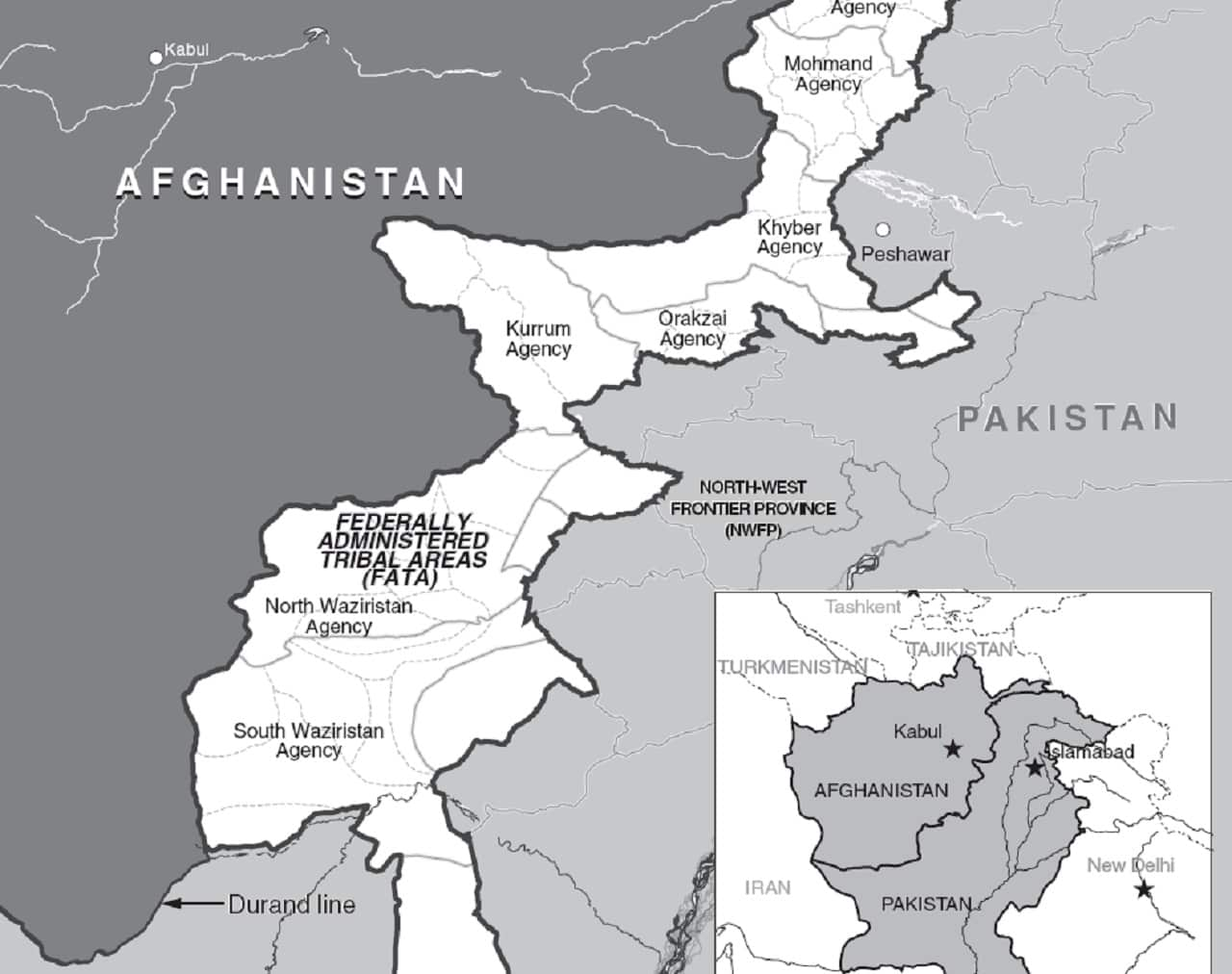In what's become his trademark red and black embroidered cap, Manzoor Pashteen arrived to address tens of thousands of supporters gathered in the Pakistani city of Karachi.
He had travelled to the port city - home to the country's urban Pashtun population - not by plane, having been refused a seat on any airline - but by a gruelling 60-hour car journey instead, from Islamabad. It was meant to be a one hour flight.
It was the latest rally in a series across Pakistan by ethnic Pashtuns demanding an end to extrajudicial killings and abductions they blame on the Pakistani state since its domestic war on terror began in 2003.
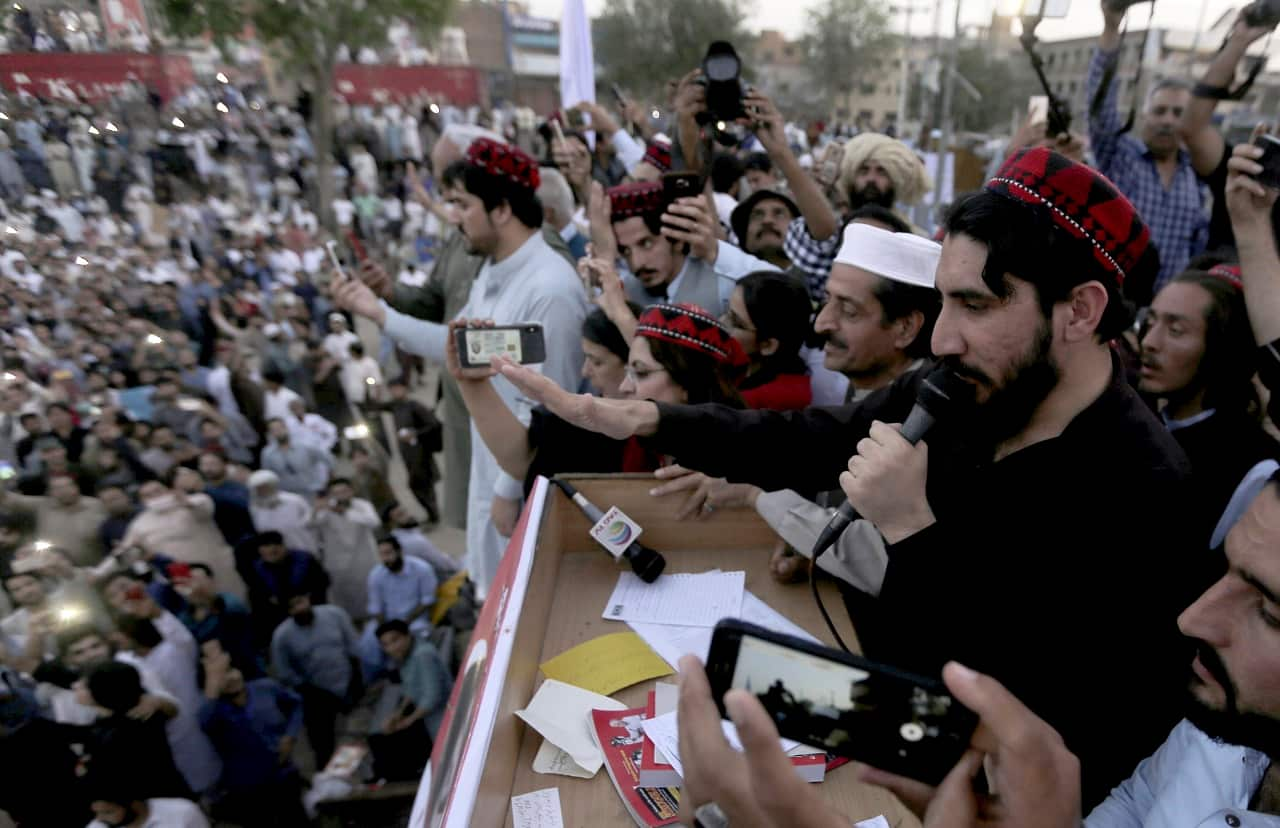
Long march
The 26-year-old, dubbed by the west as Pakistan's 'Che Guevara' and by his followers as the 'Frontier Gandhi', has become the figurehead of the Pashtun Tahaffuz Movement - or PTM - a civil rights movement demanding accountability from Pakistan's army, which it claims, has been involved in the death and disappearance of thousands, possibly tens of thousands, of minority Pashtuns in the remote Federally Administered Tribal Authority region in north-western Pakistan.
"We want the missing persons to be presented to the judiciary," Pashteen tells SBS Pashto via Skype.
"To investigate the extrajudicial killing we demand to the establishment of truth and reconciliation commission to find out who has done the killings and why they did it? We also demanded the clearance of mines in the FATA region and the end cruelty in tribal areas.”
He is also very aware that he is a target.
“The threats towards me is there from the first day because the record of the military shows whoever in my area has raised his or her voice for peace, they were killed,” he says.
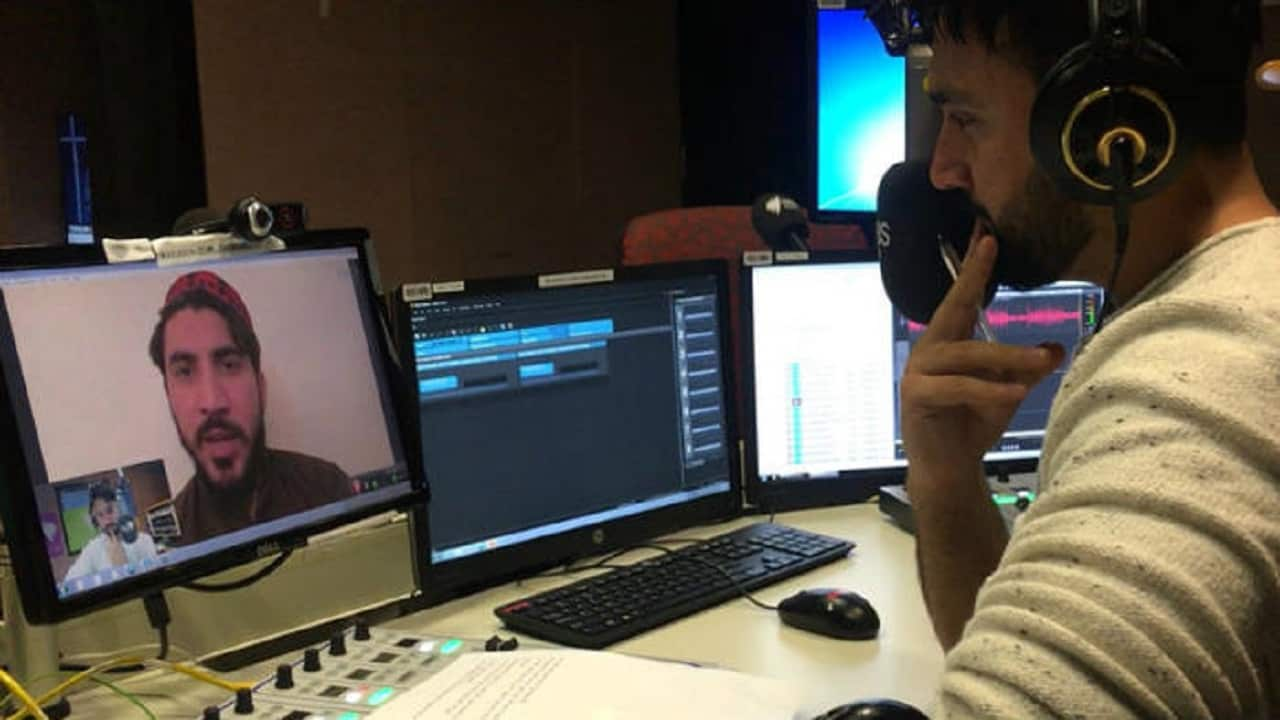
Grassroots beginnings
The grassroots movement ostensibly began only relatively recently but has grown rapidly in Pakistan - started by young men from tribal areas of Pakistan, originating from South Waziristan - one of Pakistan’s seven semi-autonomous Federally Administered Tribal Areas, commonly known as FATA.
The movement initially began in 2014, says veteran Pakistani journalist Rahimullah Yusufzai.
"They were raising the issue of the landmines which were taking a heavy toll on people in South Waziristan, because the people were returning home after four years of displacement and there a number of people were killed and injured.
"They also wanted to highlight the issue of the problems they were facing at the security checkpoints in South Waziristan," he told SBS Pashto.

But it was the killing of Naqeebullah Mehsud, a 27-year-old tribesman and aspiring model from South Waziristan that triggered widespread protests.
Mehsud was killed by Pakistani security services as part of a raid on alleged militants from the Pakistani Taliban, however, his family said he was simply an aspiring model.
It was then, Yusufzai says, that the movement really began to gather momentum.
"They staged a long march to Peshawar and in Islamabad held a 10-day protest sit in, and I think since then they have been getting more support from the Pashtun people who felt humiliated at the checkpoints in Swat and other parts of Fata (Federally Administered Tribal Areas). The leadership then started calling their movement the Pashtun Tahaffuz Movement.
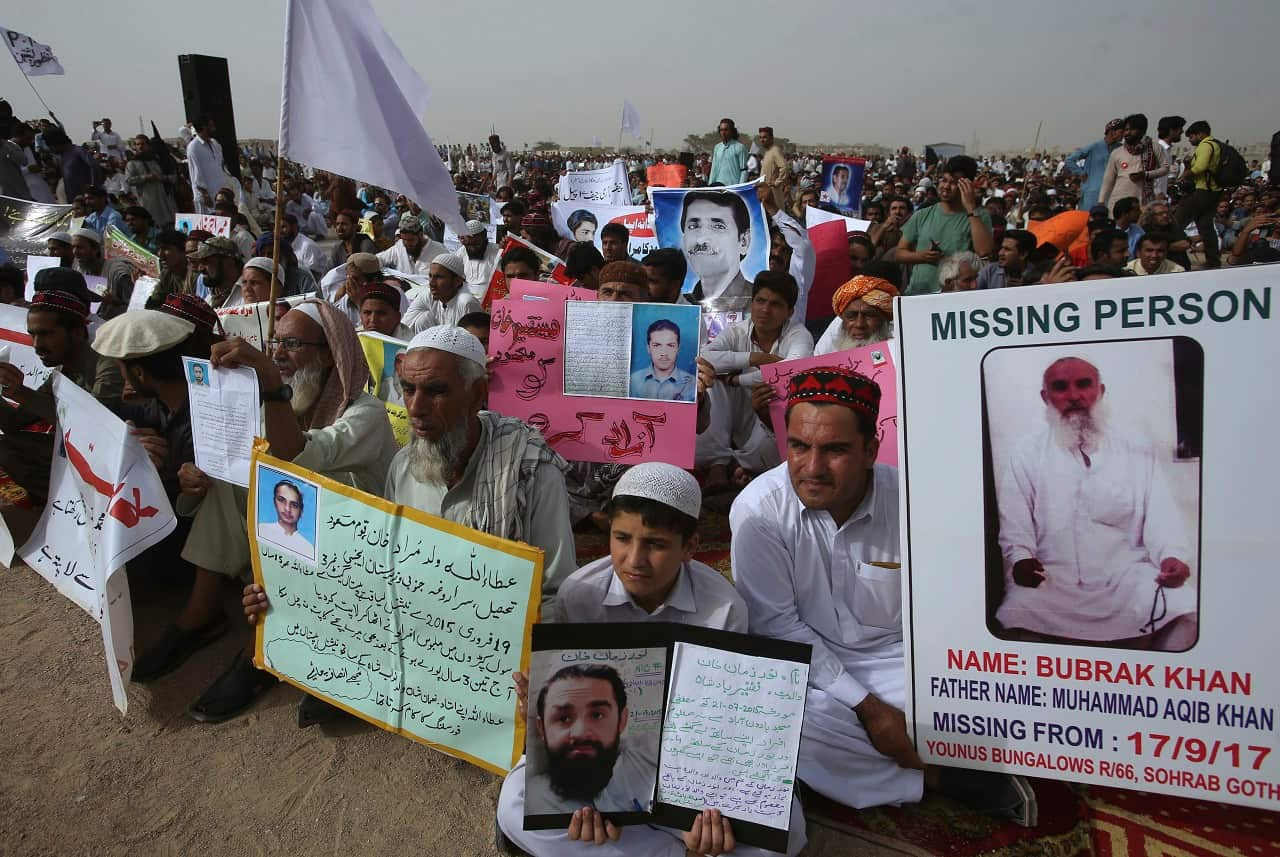
"Some of the issues have been addressed. The number of checkpoints has been reduced. Also, the police officer accused of murdering the model, Naqeebullah Mehsud, in Karachi has been arrested. Also, the attitude of police at checkpoints has changed; they're more friendly to people who are crossing. There have been changes; there has been some improvement in the security situation but the most important issues are the missing persons and that issue is still unresolved.
However, that's a claim rejected by Manzoor Pashteen.
“The Pakistani Army has not accepted our demands, we have asked them to present the missing persons to the judicial, how many have they presented they should show us? We have asked for a commission to investigate extrajudicial killing have they made any - they haven't? We have asked them to clear mines from our areas. We have asked them to stop the oppression In tribal areas, and they still keep killing people.”
Supporters detained
There's concern about increasing numbers of PTM activists and supporters being detained. Just this week Amnesty International called for the unconditional release of 37 activists - including several students who had been due to sit their exams - detained in Rawalpindi for supporting the PTM's protests. They've since been charged with sedition, according to Amnesty, which says "peaceful protests is a right protected by international human rights law and the Pakistani Constitution."
Media blackout
While the movement says its demands are constitutional and with the law, the Pakistani media has nevertheless been criticised for its continued blackout of the PTM's rallies across the country. Instead, footage has emerged on social media and Pashteen himself has been interviewed on many outlets including the BBC, New York Times, Guardian and CNN.
While he thanks the international media for its coverage of PTM gatherings - "they have seen us as humans," he scorns authorities in Pakistan, "On the other hand we send a curse to Pakistani media because they are racist. The Pakistani Army doesn’t recognize Pashtuns rights and believe that they are slaves and shouldn't have raised their voice.”
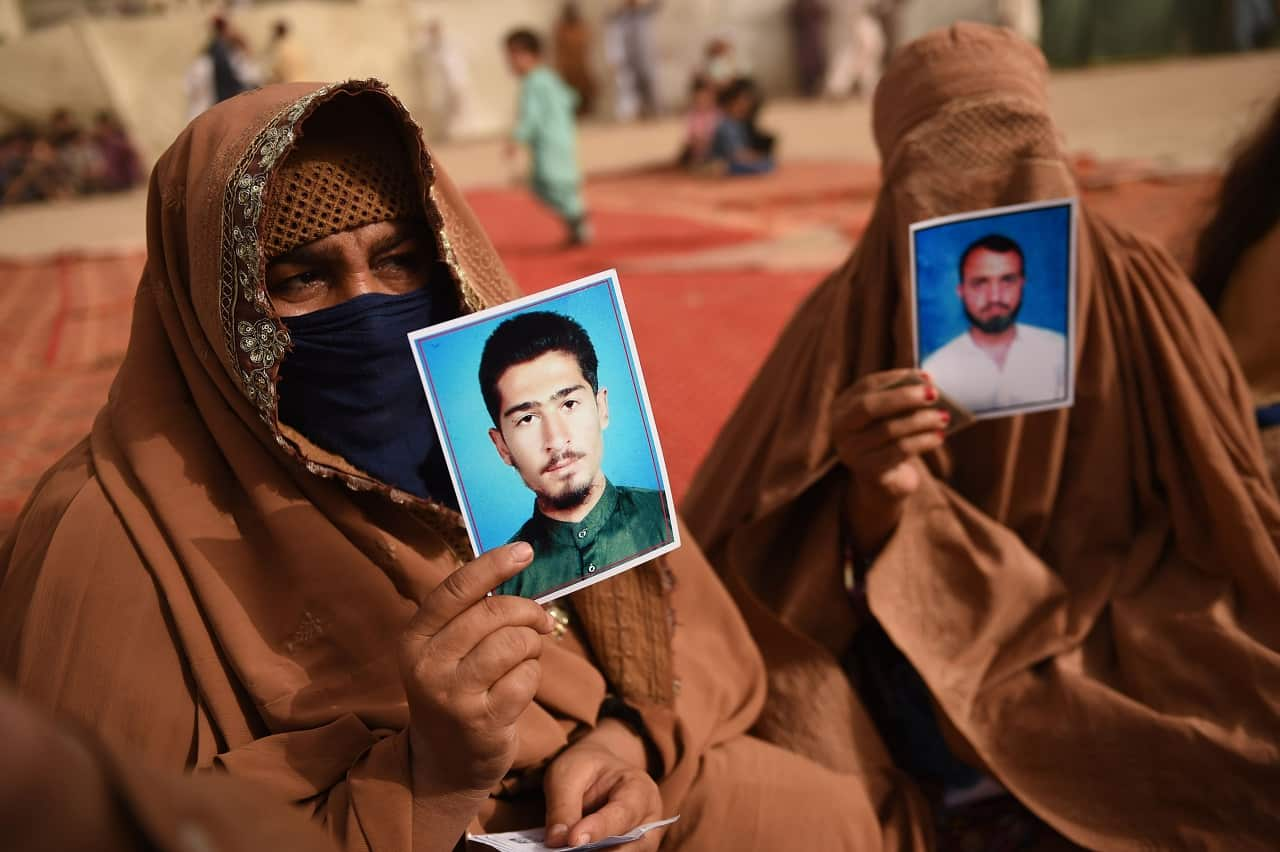
Rahimullah Yusufzai suggests that the Pakistani establishment became angry because the leadership of the PTM had been criticising the military openly.
"When you make allegations against the military or against any other organisation and you don't produce evidence you don't take that to the Court then problems arise and that's the reason I think there has been a media blackout," he says.
"This is the first time, I think that such criticism has been triggered so openly against the Pakistani army."
The PTM, Yusfuzai says, also started adding more demands to their list. "That actually has annoyed the Pakistani military and others. And that's the reason they have been criticised - if they had stuck to their initial demands there would have been no problem."
That's an allegation Manzoor Pashteen categorically denies.
General elections
While there are ongoing talks between the PTM and senior tribal leaders appointed by the Pakistan government, Amnesty International is calling for the "current crackdown" on human rights to end ahead of general elections across Pakistan on 25th July 2018.
"I think that right now there are some talks going on between the two sides; a Jirga, a council of elders has been formed and has held two rounds of talks with the PTM leadership", says Rahimullah Yusufzai, "there has been no breakthrough but talks are continuing.
"The PTM movement says they are peaceful, they are unarmed, as long as they are peaceful and don't resort to violence, there is hope that some of the issues at least can be resolved."
For Manzoor Pashteen, his message is simple.
"Pashtuns are structured, loving, non-violent people. It's just the Pakistani government which has given a bad image of Pashtuns to the world.”
